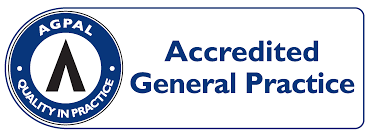Electronic Communication Policy
Healesville Medical Centre
ELECTRONIC COMMUNICATION POLICY
General practices are increasingly using electronic communication to correspond with patients and other health professionals.
Our practice electronic communication policy for use with emails and SMS will help protect the security of patient information and the reputation of Healesville Medical Centre.
The practice team is familiar with the following policy, comply with the policy, and understand the risks associated with using electronic forms of communication, both internally and externally.
The Electronic Communication Officer
The practice has appointed Nicole to act as Electronic Communication Officer.
The Electronic Communication Officer is responsible for:
- Maintaining the policy.
- Providing an information session on this policy as part of a new employee’s induction.
- Informing staff of updates and refresher training through staff meetings and notices.
- Responding to any concerns that staff or patients have with the policy.
- Implementing and recording quality improvements to the system as a quality improvement activity in the Practice Improvement Log.
Email and SMS – For Staff
The use of email and SMS are recognised as a use tool for communication purposes. Practice staff are permitted to use the practice email account to send and receive business related material such as education updates, communication with nursing homes, account follow up and other work related communication.
All Doctors and Receptionists have access to the practice email account for the day to day running of the practice and is for business communication only.
Employees are reminded that the practice may become liable for the content of any email message under certain circumstances. As such, a template email disclaimer in inserted into the signature of all practice emails.
The use of personal email accounts using practice internet and computer systems is discouraged, but may be used in personal/lunch/break times where this does not interfere with day to day operations.
Protection against spam and theft of information
The practice utilises a spam filtering program.
Staff will need to exercise caution in email communication and are advised to:
- Not open any email attachments or click on a link where the sender is not known.
- Not reply to spam mail. Never try to unsubscribe to spam sites.
- Be aware of fishing scams requesting logon or personal information.
SMS and Email – For patients
Our patients will be given the option of being contacted by electronic means such as email and/or SMS.
All new and existing patients in the practice will be given a New Patient Form or Update of Details Form which contains an agree or disagree to electronic communication.
It is acknowledged by the practice that the consent is implied if the patient initiates electronic communication with the practice.
Reception staff are to check each patient has this information on their record on arrival to the practice, along with the verification of their name, date of birth and address.
The signed consent will be scanned and recorded in the patient electronic record and their response recorded on the practice software.
SMS is used primarily for:
- When the patient needs to make an appointment to review a test result.
- As a reminder that a generic preventative screening test (ie. immunisation, fly vaccine, cervical screening) is due.
Email is used primarily for:
- Receiving information from Allied Health.
- Invoicing work cover accounts.
- Work Care correspondence.
- Medical updates for the Doctors.
- Answering some emails from patients.
Send us a message
Contact Us
We will get back to you as soon as possible.
Please try again later.
Policies & Documents
Opening hours
- Mon - Fri
- -
- Saturday
- -
- Sunday
- Closed

Contact us
Address:
34 Symons St, Healesville VIC 3777
Policies and Documents
Opening hours
- Mon - Fri
- -
- Saturday
- -
- Sunday
- Closed
All Rights Reserved | Healesville Medical Centre | Privacy Policy
Hills Riches Websites and mobile apps for difference makers
